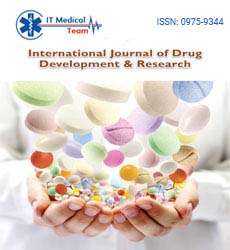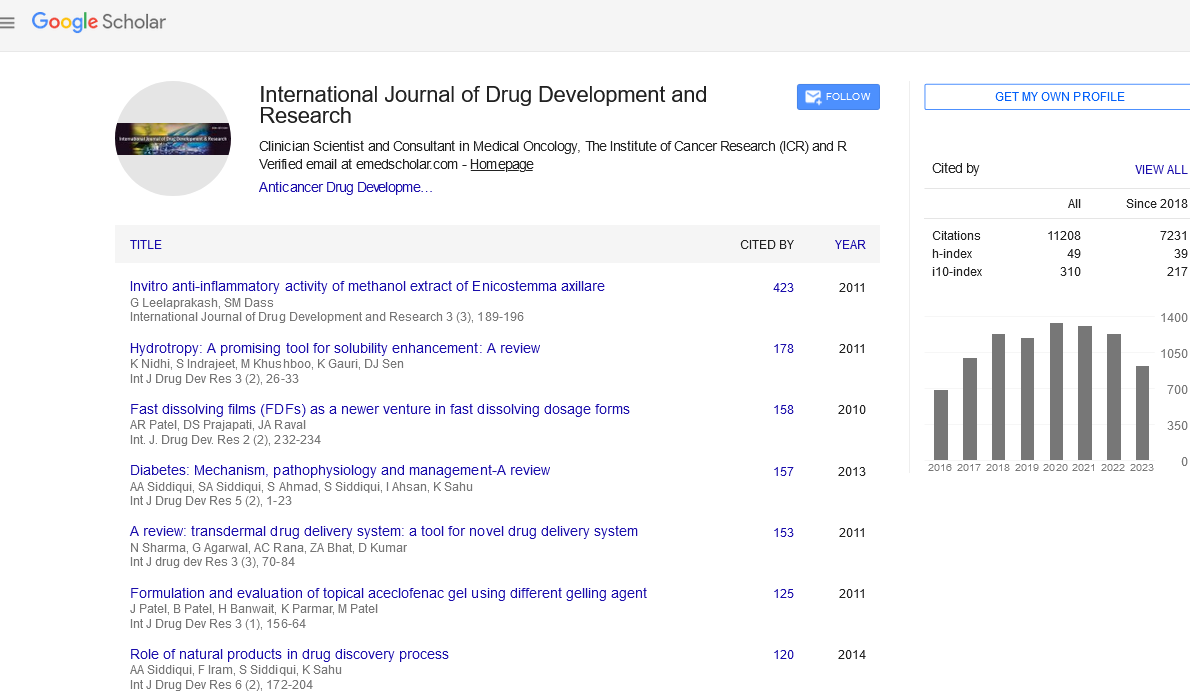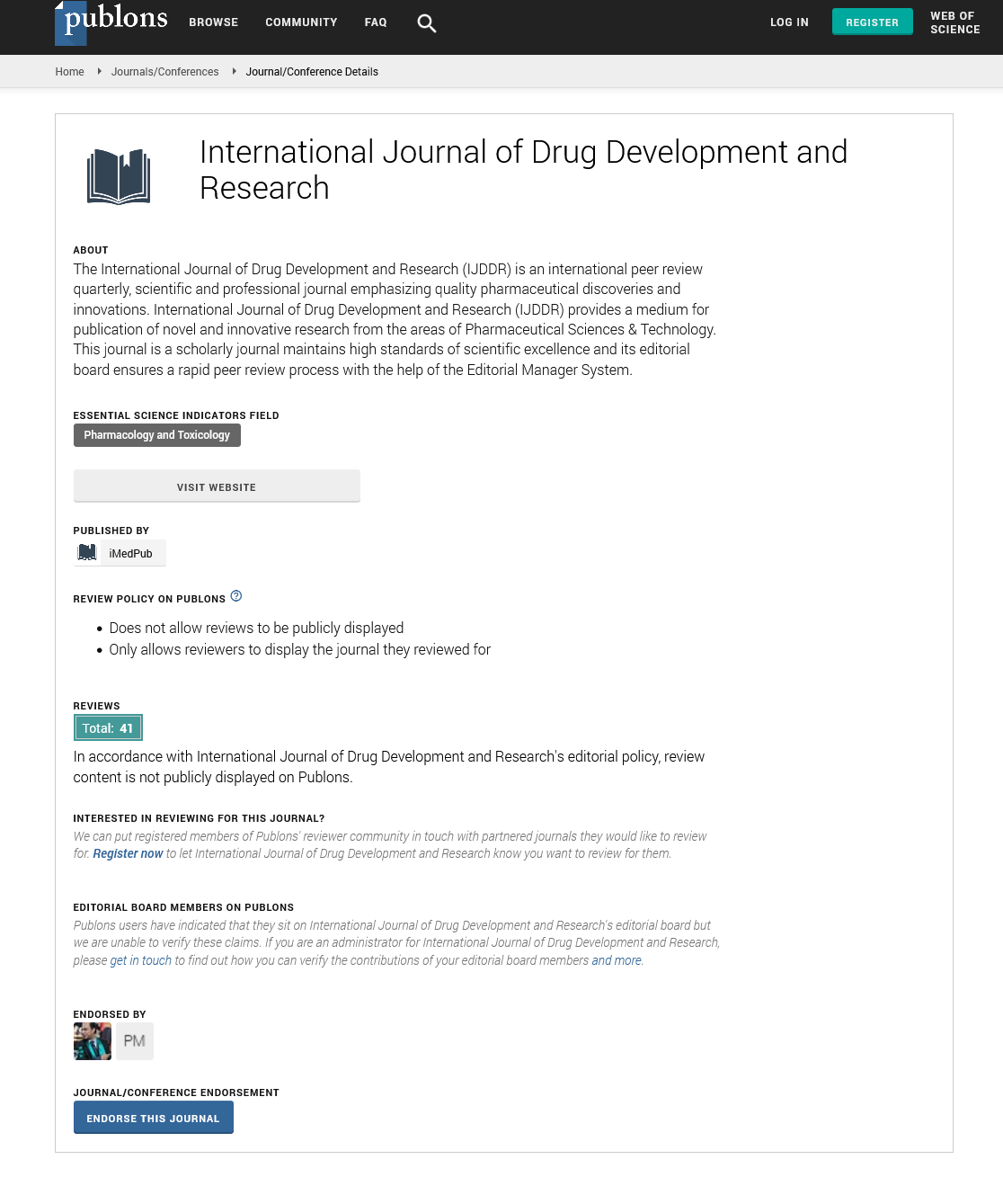Keywords
|
| Design Space, Critical Quality Attributes (CQA), Critical Material Attributes (CMA), Target Product Quality Profile (TPQP), Critical Process Parameters (CPP) |
INTRODUCTION
|
| A few years back, pharmaceutical companies go through a day by day increasing the difficulty of economic environment. The monetary value related to the manufacturing and development of pharmaceuticals is centered by enhance in the regulatory vault for the approval of new molecule, patent expirations and raised healthcare costs. It has been calculated that most of the pharmaceutical processes function at 2.5-4.5 sigma quality levels, but resource intensifier pharmaceutical company quality systems accomplish 5 sigma quality levels by classifying, retreading to preclude the product having any fault leaving the factory. Conventional development rivet on the formulation and the legal transfer of the product to the succeeding phase of the clinical studies. Mostly the formulation developments have a tendency to be reiterative and designed through empirical observation. Therefore, changes were forced by the need to alter the process at the time of scaleup or due to the formulation going wrong to come across the hoped shelf life of the product. |
| During phase 3, the developers kept in his mind for very less changes to keep away the call for valuable bioequivalence studies to span between the Clinical Trial Material (CTM) and the commercial product. Therefore, pharmaceutical companies fix their processes and the product quality was assessed by finish product testing. This imminent is ineffective and does not alleviate persistent improvement. Earlier, there also subsisted a belief that the regulatory processes and essentials nixed manufacturing enhancements, which preclude the pharmaceutical industry. The cGMPs introduce for the 21st century and the publication of the Process Analytical Technology (PAT) counsel in 2004 by the FDA surfaced the way for the pharmaceutical industry making modern. The experts from the three territorial grouping (USA, EU, and Japan) working on the Quality Topics within ICH produced an imagination for the future pharmaceutical quality system (Fig: 1). (1-5) |
| The industry has made forward motion on QbD since the FDA began its 21st Century Quality Initiation, but this is not enough submissions of QbD to date. Contempt the obligating case, the widespread change that the FDA saw has not occurred at the stride that was envisioned. Accomplishing the 21st Century Quality vision will expect a transformative journey for the industry that requires a substantial change in its development process. (6) The pharmaceutical industries function potentially to grow, manufacture, and carry to market new drug and to conform to regulatory needs to declare that the drugs are harmless and efficient. A new approach to drug development possibly will enhance efficiencies, offer regulatory support and flexibility, and propose significant company profit all over the product’s life cycle. Software quality has been a modern approach since the early days of pharmaceutical engineering. Recently, a number of practitioners have shown great interest in using design patterns for highquality software. (7-10) |
QUALITY BY DESIGN (QbD)
|
| This concept was first drafted by well-known quality expert Joseph M. Juran on Quality by Design. In the former 1990 FDA’s internal discussion began and in 2002 the concept paper on 21st century Good Manufacturing Practice was published. |
| QbD is defined as, “A systematic approach to development that begins with predefined targets and emphasizes product and process understanding and process control, based on sound science and quality risk management”. (11- 15) |
|
Benefits of QbD
|
| Powerfully sharpened on collaboration between research and manufacturing, QbD encourages process realizing for increased potency efficiency. Since QbD convey medicines to patients in a better-understood and fundamentally more authentic way, consumers benefit as well. |
| This technique minimizes post approval regulatory submissions, reduces risk around manufacturing failures and product recalls, brings down nonvalue- added regulatory and abidance activities, and facilitates new approaches to process validation. |
| QbD idea merged with a growing global industry association that in the direction of building class into pharmaceutical development through manufacturing by major gaps between pharmaceutical development and manufacturing and using have science to elaborate and ensure the safety of product, quality and efficacy overall hole life cycle. |
| Pharmaceutical companies are interestingly involved in the PQLI initiative. European federation of pharmaceutical industries and association conducted a regulator or industries event around ICH Q8, Q9 and Q10 with the collaboration of pharmaceutical industries. Pharmaceutical industries plays vital role in facilitating this mutual idea. Activities included mock regulatory examination that were conducted at manufacturer’s sites and seminars on different topics that included product life cycle management, ahead thinking action and complication. (16) |
|
STEPS OF QBD INVOLVED IN STARTUP PLAN
|
| · Employ a self-sufficient Quality by design expert. |
| · Appraisal the organization and process with the expert conducting a separate examination |
| · Embrace a basic quality by design meeting with your entire special. |
| · Evaluate the expert’s description and proposal |
| · Draft an execution plan, timelines and probable expenses. |
| · Allocate the resources. |
|
|
| · Keep hold of the self-regulating expert as your “project declaration” consultant. (17) |
|
IMPORTANCE OF TPPS AND QTPPS IN PRODUCT DEVELOPMENT
|
| A quality target product profile (QTPP) relates to the mandatory value of a drug product or drug substance that is essential to deliver a desired beneficial outcome. When prepared proactively, the QTPP assists a pre-specified objectives demonstrating product and process deliverables that will offer the maximum benefit for attaining the critical attributes that impact drug product quality. |
| The QTPP incorporated all the basic attributes a product requirement to deliver in order to meet its proposed use. A product’s QTPP renders direction for relating its process, formulation, and incoming materials with therapeutic patient outcome. |
| Once all of the elements of a QTPP have been defined, a beginning risk evaluation should be concluded before starting development activities. This appropriates for amendment of the QTPP, if needed, and guides development actions previous to deal of major development resources. It is important to note that risk assessments should be updated as further knowledge is gained during development. (18) |
|
CERTAIN FUNDAMENTAL EXPRESSION OF QBD 1. Target Product Profile (TPP)
|
| The TPP forms the basis of design of the product: |
| · Dosage form |
| · Route of administration |
| · Strength |
| · Release/delivery of the drug |
| · Pharmacokinetic characteristics (e.g., dissolution; aerodynamic performance) |
| · Drug product quality criteria (e.g., sterility, purity). |
2. Critical Quality Attributes (CQAs)
|
| CQAs deal the physical, chemical, biological, or microbiological property within a suitable limit, range, or distribution to ensure the desired product quality. This is used to direct the product and process development. In case of solid oral dosage forms usually those aspects affecting product purity, product potency, product stability & drug release. |
3. Design Space
|
| It is a multidimensional arrangement and relations of input variables (e.g. material attributes) and process parameters that have been confirmed to provide assurance of quality. If you perform your process within the design space then this will not regarded as a change. And if processing is performed out of the design space, is considered to be a change and would normally begin a regulatory post approval amend process. |
|
4. Control Strategy
|
| It is very important to control the material attributes which are in processing viz. drug substance, excipients, and packaging materials on the basis of their impact on process ability or product quality in-Process controls & end product controls. This control is basically focus on process and formulation understanding that force back the process in the design space based on quality risk management to make certain quality according to specifications. |
|
5. Management and improvement of product lifecycle
|
| The main concern to modify and improve the process within the design space is gathering manufacturing data. At this level, the proposed concepts and rationale for implementing quality by design practices is well understood and accepted. Along of these all, the target is to design a process that fulfills the needs of safety and efficacy for the patient. (19-23) |
CONCLUSION
|
| To create a design space parallel to one it is essential to have a detailed understanding of both the characteristics of the formulation and the potential of equipment. One of the key elements of QbD is to prospectively develop in detail process and product understanding, and to relate that understanding to ascertain robust manufacturing processes. From industry perception, even though the QbD approach is estimated to bring about considerable long-term benefits, concerns remain around the increased amount of characterization work that is needed upfront. |
Figures at a glance
|
 |
 |
| Figure 1 |
Figure 2 |
|
| |








